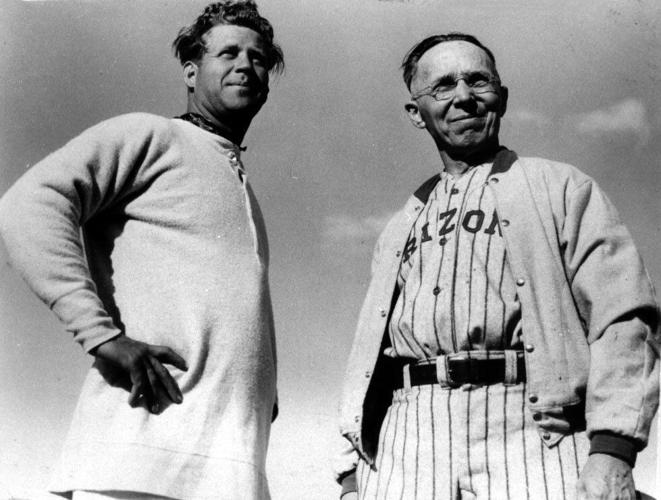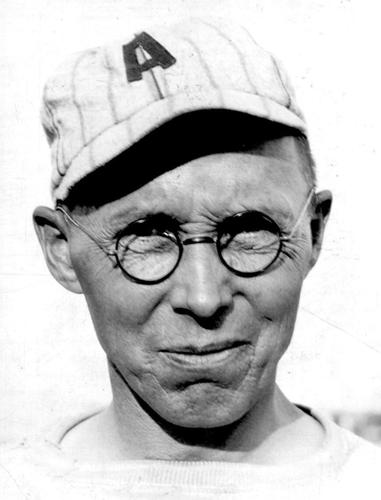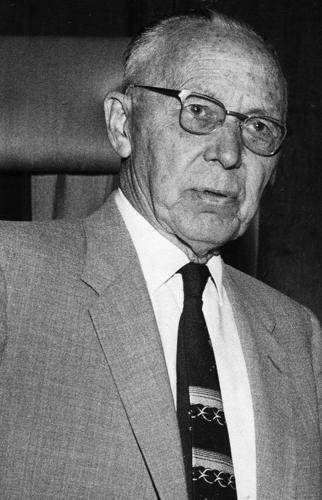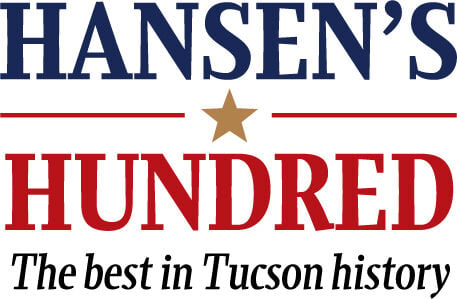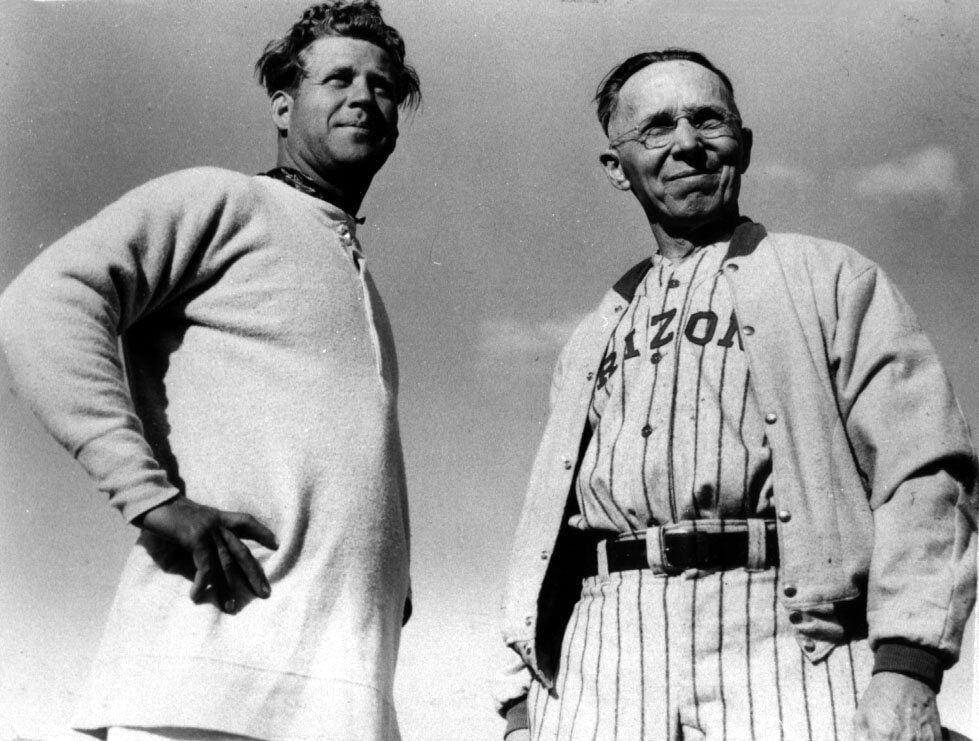To celebrate the 80th birthday of James F. “Pop” McKale, the University of Arizona booster group and dozens of his former players planned a gala event at a downtown hotel for June 10, 1967.
Star sports editor Abe Chanin wrote: “They’re tossing a big fete for the greatest man in all of Arizona athletics. The man who planned and helped to build what were once the greatest facilities in the Rocky Mountains — the man who helped to schedule USC and UCLA and elevated UA athletics from rock-strewn playing fields to a program of major stature — will be remembered as the grandest man in Arizona athletics history.”
But McKale died of a heart attack on June 1, two blocks from campus at the home he had lived in for almost 40 years.
“Listen to me, McKale was like God,” said Rollin T. Gridley, one of McKale’s prominent 1920s football players, a man who later coached Tucson High to seven state football championships. “He just didn’t take from players, he gave to them. Those of us who played for him have never forgotten the lessons he taught us.”

University of Arizona football coach James F. "Pop" McKale in 1936.
McKale’s reputation was such that among those who attended his funeral were Kenneth L. Wilson, president emeritus of the U.S. Olympic Committee; W.F. Fehring, president of Stanford University; and Everett Barnes, president of the NCAA. Arizona State baseball coach Bobby Winkles, whose team was en route to Omaha, Nebraska, where it would win the College World Series, said that he and his team were dedicating the '67 World Series in McKale’s honor.
Two months later, when the state legislature gave final approval to build a new basketball arena at the UA, the Board of Regents voted to name it after Pop McKale.
McKale, ranked No. 2 on our list of Tucson’s Top 100 Sports Figures of the last 100 years, grew up in Lansing, Michigan, the son of a deputy sheriff. When he graduated from Albion College in 1910, McKale applied for a teaching/coaching position at Tucson High School, which then had 250 students.
“I was tired of the icy winters and cold; I was told it never rained in Tucson,” he told Chanin. “I arrived by train in Tucson on the first Tuesday of November, and it was pouring rain. I walked through muck and mud all the way to the Heidel Hotel. There wasn’t an inch of pavement in Tucson.”
Thus began what would become an almost fable-like career of Pop McKale, the man who effectively paved UA sports from the ground up.

He was the force behind getting Bear Down Gym, then the best of its kind in the Southwest, built in 1926. He was the man who supplied the momentum to build Arizona Stadium in 1929 and the man who turned Arizona into one of the country’s two or three best college baseball programs.
“Without Pop, Arizona would’ve probably turned out more like New Mexico State or UTEP,” longtime UA vice president Swede Johnson told me in 1993. “We started playing USC and even Notre Dame in football. We were years and years ahead of ASU and the other WAC schools in facilities and competition.”
Wrote Chanin in 1970: “When Arizona hired McKale away from Tucson High in 1914, it was the beginning of a golden era of athletics.” Chanin quoted 1920s football star Orville “Speedy” McPherson as saying, “Pop broke us out of the era of playing the town teams and Indian schools.”
Not all went well in McKale’s 43-year term as Arizona’s athletic director.
In early October 1926, Arizona starting quarterback John “Button” Salmon was fatally injured in a one-car rollover near Florence. Salmon, who was also student-body president, died Oct. 18. After a week of mourning, the UA football team took a train to Las Cruces to play New Mexico State.

James F. "Pop" McKale in 1957.
In 1984, I asked Arizona’s 1926 standout lineman Martin Gentry, who became an attorney in Tucson and Bisbee, about Salmon’s death and the legacy that grew from it.
“Button was a very popular young man, and it was a terrible thing, that accident,” said Gentry. “I can still remember the funeral and the day Pop gave us the pre-game talk before we were to play" at New Mexico State.
“That was the day McKale quoted Button, on his death bed, as saying, ‘Tell them to Bear Down.’”
A year later, Gentry was among a dozen UA football players who helped to outline and paint “BEAR DOWN” on the roof of the school’s new basketball gymnasium, which was soon officially named Bear Down Gym.
“Bear Down” has become the school’s anthem, whether at a basketball game or when former UA students greet one another at homecoming or at a bar to share old stories.
In McKale’s first year as Arizona’s football coach, 1914, the Wildcats played then-West Coast powerhouse Occidental in Los Angeles. Although Occidental won, a Los Angeles Times reporter wrote that McKale’s team “showed the fight of Wildcats.”
Within a few months, the UA officially adopted the nickname Wildcats.
The “Bear Down” legend and the nickname Wildcats weren’t created by a slick marketing firm, but rather by the lead of a former chemistry teacher from Lansing, Michigan.
“It was Pop McKale who put the University of Arizona on the map nationally,” the Star wrote in an editorial a few days after his death. “For 56 years, Pop McKale left a large and good mark not only on Tucson, but Arizona and the Southwest.”
Over the years, McKale coached the UA’s football, basketball and baseball teams to a combined 428-164 record. He retired from the school’s athletic directorship in 1957.


